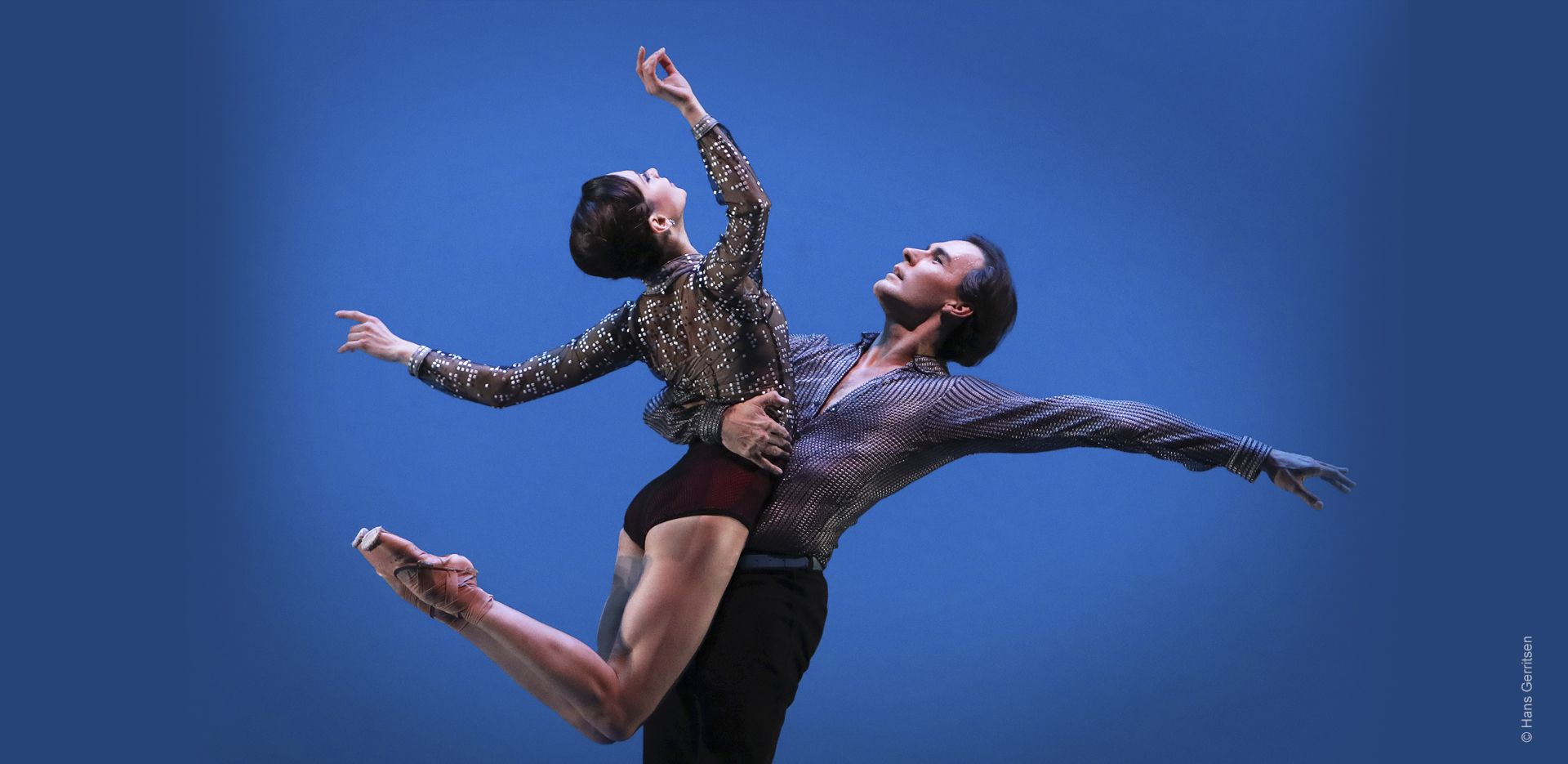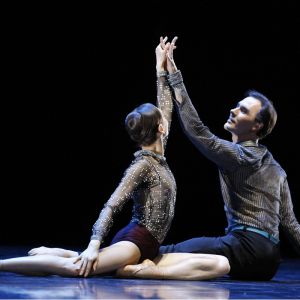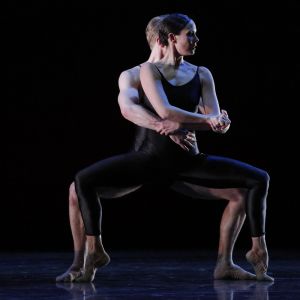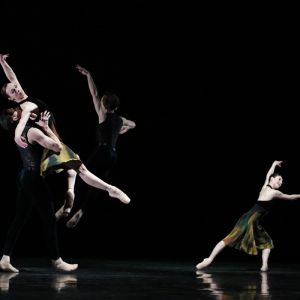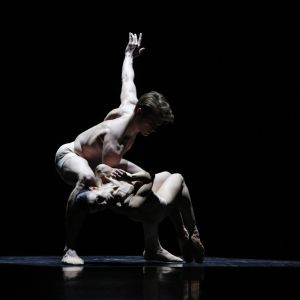Six little masterpieces by great masters, performed by a ballet company praised as one of the best in the world. A cross-cutting story of the infinity of beauty embodied in movement and human body. This story has five narrators, five brilliant individuals, that speak their own unique language each. The variety of forms and styles will confound the one who tries to develop the general formula for success and find the «golden section» of the up-to-dated ballet, but will give a real pleasure to those who are ready to discover something new and unknown.
CONCERTO CONCORDIA
Choreography: Christopher Wheeldon
Music:by Francis Poulenc – Concerto for two pianos and orchestra in D minor
The music is incredibly lively, but also has a ‘yang’ side; a darker undertone. That gives me a world of colour and emotion to work with. One moment, the music sounds playful and sardonic, and the next it’s mathematical. And then there suddenly comes a sublime section, which is so beautiful and so serene that you feel like you’re lying down looking at the stars at night.
Christopher Wheeldon created Concerto Concordia in 2015 for the Holland Festival programme Cool Britannia. Wheeldon was inspired by Francis Poulenc’s Concerto for two pianos and orchestra; a composition that interweaves light and dark. The two couples bring to life all the layers, tempi and timbres of Poulenc’s composition, each in their own masterly way. They are surrounded by six other couples, who frame, mirror and reinforce their dancing, or else fulfill the role of counterpart to it, in a very light-hearted and natural way. It is a pleasure to see the ease with which Wheeldon alternates and combines the corps de ballet with the principals, and how he both separates and overlaps the duets, group sections and male and female variations. Many elements of the light-hearted, jazzy character of Concerto Concordia are reminiscent of the work of George Balanchine.
SOLO 5 TANGO'S
Choreography: Hans van Manen
Music: Astor Piazzolla
"5Tango’s" premiered forty years ago but it could have been created just recently. Van Manen’s blend of classical ballet and sensual tango passion will never feel dated.
PAS DE DEUX TRISTAN + ISOLDE
Choreography: David Dawson
Music: Szymon Broszka – Tristan + Isolde
It’s a fitting subject for Dawson who avoids well-worn paths preferring to carve out pristine galactic highways. His choreography searches for the extreme: ultimate extensions, pointes that skim over the stage and an aching stretch in the arms.
A tale of love, sacred yet forbidden, healing yet destructive, fulfilling yet frustrating, tyrannical yet benevolent, a love that would never die. David Dawson breathes new life into this love story beyond earthly measure. Dawson pursues the extremes of this love in an elegant language of movement carried by the finely aware music of Polish composer Szymon Brzóska, who created an entirely new score for this ballet. In Tristan + Isolde, David Dawson demonstrates a refined use of symmetry and order, continually giving them another twist. The ballet is a feast for the eyes, filled with kaleidoscopic shapes and unpredictable combinations.
DÉJÀ VU
Choreography: Hans van Manen
Music: Arvo Pärt
Van Manen works with metaphor, not literal mime. Concentrate on the movement and you see dance geometries arranged in mirror unison, or in partnering, or in sudden frozen postures that seem to listen to the suspended moments of Arvo Part's Fratres for violin and piano.
SOUVENIR D’UN LIEU CHER
Choreography: Alexei Ratmansky
Music: Pyotr Tchaikovsky
Ratmansky has given Dutch National Ballet a miniature jewel for two couples, so ripe with emotion it seems to compress several novels into 14 minutes...
«The music must have been used before by choreographers. It’s so danceable», says Alexei Ratmansky. «It’s music that stays in your heart and mind. Not in a tacky way, but in a sophisticated one. It’s honest music. Tchaikovsky never tries to please his audience in it." The leading Russian choreographer breathes new life into the Russian romantic tradition, with an exceptionally inventive and refined use of classical ballet technique. Following an adagio filled with melancholy and yearning, the dancers gradually start celebrating their love more exuberantly, transporting the audience in an exciting relay race of virtuosity. ‘Unrivalled’ and ‘an absolute gem’, was the opinion of the dance critics.
MOVING ROOMS
Choreography: Krzysztof Pastor
Music: Alfred Schnittke
Pastor’s ballet is about the emotions that can be generated by a space, or by lack of space.
Pastor created the ballet Moving Rooms in 2008, as part of the programme «In Space», in which seven choreographers — from upcoming to established — formulated a contemporary answer to Hans van Manen’s masterpiece Situation. Pastor was inspired by the physical and psychological approach to space expressed in Van Manen’s work. Unlike Van Manen, Pastor uses the entire stage, and his spatial limitations are created not by walls, but by magnificent lighting designs. Trapped in changing compositions of lit squares, eleven dancers create a stirring and compelling chess game of lighting and movement, spurred on by the powerful music of Alfred Schnittke and Henryk Mikolaj Gorecki. At its premiere, Moving Rooms received a standing ovation and the press wrote that it was the best new item in the programme In Space. Some critics praised the strong male solos and sensuous duets, whereas others thought that the virtuoso group sections were the highlight of the evening.

